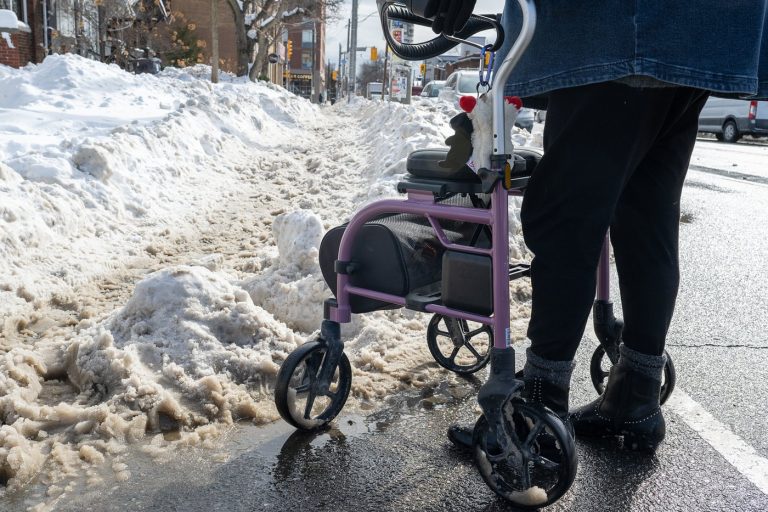As Ontario voters head to the polls in an unusual winter election, disability advocates are raising concerns about accessibility barriers that could have been avoided with better planning and policy safeguards. With snowstorms hitting several regions in February, icy sidewalks, snow-covered streets, and mobility challenges have made it more difficult for voters with disabilities to cast their ballots.
According to David Lepofsky, chair of the Accessibility for Ontarians with Disabilities Act Alliance, calling a snap election in winter exacerbates existing accessibility barriers, leaving many voters struggling to reach polling stations.
“Just one mountain of snow piled up in the way can be an insurmountable barrier for people like me who are blind,” said Lepofsky. “It could have been completely avoided, which would be foreseeable by anyone calling an election in February.”
Lepofsky is calling for legislation to prevent winter elections or, at the very least, to ensure safeguards that would minimize risks for voters with disabilities. He also urged municipalities to improve snow removal efforts, particularly during elections, to ensure sidewalks and pathways remain accessible.
“You can’t stop the snow from falling, but we do have a problem where shoveling creates new barriers—namely, piles of snow in places where people need to walk,” he added.
Elections Ontario provided some alternative voting options for those unable to reach polling stations due to snow and accessibility concerns. These included:
- Home visits (available by request up to one day before the election)
- Mail-in ballots (application deadline: February 21)
- Assistive voting technology at advance polling locations and election offices
However, Rabia Khedr, national director of Disability Without Poverty, argues that these options are insufficient and not widely accessible.
“Mailboxes themselves may not be accessible in winter conditions, and having an election official enter someone’s home raises privacy concerns,” she said. “People with disabilities may not always have the necessary supports at home to ensure a private and independent voting process.”
Khedr also called on Elections Ontario to explore technology-based voting options to allow individuals with disabilities to vote remotely.
“If we are truly dedicated to democracy, we must ensure that everyone not only has the right to vote but also the opportunity to do so safely and independently,” she added.
Dave Pearce, a spokesperson for Elections Ontario, assured voters that contingency plans were in place for extreme weather conditions and that efforts were made to set up accessible polling locations across urban and rural communities.
“Assistive voting technology was available daily at advance polls and local election offices leading up to today,” Pearce said in an emailed statement. “It is also available by appointment on election day at local election offices.”
Despite these efforts, advocates argue that awareness remains a key issue, as many voters with disabilities are unaware of the accommodations available to them.
“An individual with a disability often has to seek out this information. It’s not always publicized well enough,” said Gabriel Reznick, a lawyer with ARCH Disability Law Centre in Toronto.
Reznick stressed the need for better outreach, noting that many individuals are unaware of the voting accommodations available to them until advocacy organizations step in.
Beyond snow-related accessibility challenges, advocates highlight other structural barriers in the election process, including:
- Polling stations being too far for some voters
- Limited alternative voting methods
- Lack of sufficient outreach to voters with disabilities
While Elections Ontario has ruled out online voting due to concerns over election integrity, disability advocates insist that Canada must find a way to make elections truly accessible for all.
“No one should have to choose between their safety and their right to vote,” Khedr said. “We need a system that accommodates every voter, regardless of ability or season.”

